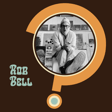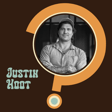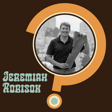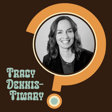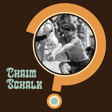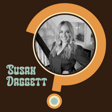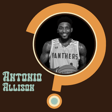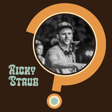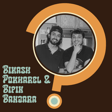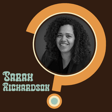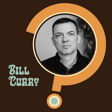Become a Creator today!Start creating today - Share your story with the world!
Start for free
00:00:00
00:00:01

Episode 14 - Joan Salwen
Joan Salwen is a co-founder and CEO of Blue Ocean Barns, a company growing and harvesting red seaweed that when fed to a cow reduces the amount of methane that cow produces by up to 80%. We talked self-doubt, believing in yourself after failure, and choosing to do the hardest thing in her professional career after having already retired from two very successful careers.
Transcript
Introduction and Episode Context
00:00:11
Speaker
Hello and welcome to What's Next. I'm Joel Krogman and this is my podcast. This is episode 14.
Storms in Illinois and Fear of Tornadoes
00:00:18
Speaker
I don't know about you or where you are, but we had crazy storms here in southern Illinois in the St. Louis area this weekend. The frequency with which this happens here is a new thing for me.
00:00:32
Speaker
There were reports of tornadoes touching down in the area around us, but thankfully nothing really too bad right where we are. And I was thinking about it the next day because I used to be absolutely terrified of tornadoes as a kid.
00:00:50
Speaker
There was a movie that I watched when I was younger where a tornado destroyed a town and I became obsessed from that point on with watching the weather. Always being aware of the weather, always looking up at the sky with some kind of weird paranoia that a tornado might be coming.
00:01:08
Speaker
It really controlled me for a long time as a kid. But the day after these tornado warnings and all that, on Saturday I was just thinking it's amazing how we can outgrow these things that used to terrify us but don't anymore.
00:01:29
Speaker
because when the sirens were going off I just I just wanted to be outside to watch the storm you know I wanted to see it and thinking about that how we can grow and overcome things it gave me hope for the kind of growth that might be possible in some other areas of my life sometimes it feels like the growing stops or at least significantly slows
00:01:50
Speaker
the older I get.
Introducing Joan Salwyn and Methane Reduction
00:01:52
Speaker
And, segue, that's why today I'm excited to share my conversation with Joan Salwyn. Joan is the CEO of Blue Ocean Barns, a company that is growing and harvesting red seaweed, that when fed to a cow reduces the amount of methane that cow produces by up to 80%. It's one of these crazy stories that makes you do a double take when you hear it, because it sounds impossible, but it's true.
00:02:18
Speaker
And it has the potential to make a dramatic impact on climate change, and that's what her goal is with Blue Ocean Barns. But before Jones started Blue Ocean Barns, she spent 20 years in the corporate world at Accenture before making a big departure into education.
00:02:33
Speaker
I got to know her last summer when I worked on creating a few videos about her company Blue Ocean Barns. We met in Hawaii where her offices are and getting to see the operation and all the tanks of seaweed growing, the harvesting and everything. It's a really wild operation. It was really something to see.
00:02:53
Speaker
and there was lots of time to chat with Joan driving between locations and over meals and I was really impressed by her focus and commitment to being successful while not losing sight of the humanity of it all, of why she's doing it.
Podcast Blunder and Joan's Story
00:03:09
Speaker
Before we get into the conversation, for the sake of growing and in the hopes that I will never do it again, I wanted to say up front here that I committed the cardinal sin of podcasting. I thought I had hit the record button. And in fact, I did move my mouse to the record button and click it. But I realized a minute or so in that I had only selected the browser window.
00:03:36
Speaker
and not pressing record. So I was very embarrassed, but I'm very grateful. I realized at the beginning of the conversation and not towards the end. So that's why at the beginning of the conversation here we kind of jump right into it.
00:03:55
Speaker
Joan is talking about her childhood, about growing up in rural Iowa. Even though we missed the beginning and some great banter, I'm still beyond excited to share this conversation with you. So please enjoy, Joan Salwyn.
00:04:15
Speaker
And my parents had very solid values. They really valued education.
Joan's Upbringing and Parental Influence
00:04:20
Speaker
They wanted all three of us to look far into the future and see what we could learn and do and be for the world. And so I think there was a lot of that kind of expectation from early on that I matter, but I don't matter too much really.
00:04:41
Speaker
And that you kind of need that mix of both, right? Exactly. Yeah. So I don't know. What did your parents do? Both of my parents taught public school. Oh, OK. Yeah. My mother taught fifth grade and my father was a high school basketball coach and a PE teacher. Did they teach you? Did you go through their school? I did not have my mother. I did have my father for for physical education, which was
00:05:08
Speaker
kind of awful because my older brother, three years older than I was, was six five and very coordinated and good at every sport and pretty effortlessly did sports related things. And I played tennis and I think I was, you know, a fair tennis player for
00:05:28
Speaker
junior high school and high school level, but you wouldn't have called me, you know, an athlete. So it was kind of a tough thing to have my dad see that up close and personal.
00:05:39
Speaker
Did you guys at the dinner table have as a family have conversations around these kinds of topics? Or was it just about what the family needed in order to get the stuff done for the day? I wouldn't say that my family was very meta. We didn't do a lot of reflection. We didn't put a lot of things into words.
00:06:01
Speaker
So I would say that our dinner table was, well, certainly it was more quiet than my husband's. He grew up in Brooklyn and whenever I would get together with their family, everyone would be talking at the same time. My family did not talk over one another. It was kind of a quiet, calm. Yeah. Yeah. That's a different experience. The dinner table. Yeah. So no, I wouldn't say that much was put in two words. We reflected my family's heritage, I think, as farmers where work and routine
00:06:31
Speaker
was just the way things were. And so you didn't talk a lot about how you felt about work or contribution to society or anything else. You just did it. And my father was very matter of fact in that way.
00:06:48
Speaker
Yeah, yeah. So as a young girl growing up, what did you imagine your life becoming? My parents were funny, Joel, in that because they were both school teachers and I was growing up at a time when women were
00:07:05
Speaker
experiencing the world of work in very new ways. You know, I was not at the beginning of the, you know, women's liberation movement or anything like that, but women around me were shattering new frontiers, you know, were becoming things they had never been before. And so my parents, when they were talking about my education, said, you know, we would really be supportive of anything you could dream of, Joan. Anything you want to do or be is wonderful. We don't recommend that you become a school teacher.
00:07:35
Speaker
And so we really wouldn't be big on that. And it was, I think, because they saw that educators are not fairly compensated for the impact that they have on young lives and that it's a job that involves a lot of long hours and grading and planning and a lot of things that happen outside the workday.
00:07:55
Speaker
And I think that they felt very much that I could do more. I don't think they realized how much they were doing. What do you mean, do more? Do more than raising the next generation of children and making them curious and interested in lighting their fire. I mean, what's more than that? But they really believed that there was more and that
00:08:17
Speaker
if I wanted to be a lawyer or if I wanted to be a computer systems analyst or something like that, that would be really wonderful. Something that's sort of outside of the world of rural Ohio. Yes, absolutely. I began really thinking about, okay, well, I'm going to leave this place. I decided early on that I was going to go to college outside the state to do something else.
00:08:45
Speaker
my parents got used to that idea. And I really did think broadly about what I might do. And so I never really had like a dream, like I want to be an astronaut or I want to be something like that. But I wanted to have dreams. I wanted to achieve dreams. And so when I went to college, I just was pretty open minded about what what I might do. And and I dabbled in a lot of different coursework and I joined clubs and
00:09:15
Speaker
was just involved in things so that I could try to access my platform. Did you struggle with not knowing what it was? Did you feel like there was something wrong, that it wasn't clear to you at that time?
00:09:29
Speaker
I probably did not feel that way when I started as a freshman, but when I was a junior and still was open-minded and didn't have really a thing that was speaking to me, I think I did feel like I needed to get my act together. Were you just taking general studies?
00:09:46
Speaker
mostly. Yeah. Okay. It turned out that I took enough credits in a couple of areas that I was able to have a political science major and a Spanish minor without doing a lot of additional work. I mean,
Career at Accenture and the Learning Journey
00:09:59
Speaker
so I knew I was going to graduate with with some level of
00:10:02
Speaker
of something. But, you know, I left school still open minded, Joel, because at that time, which is different than today, a lot of large corporations had training programs. And the training programs were
00:10:19
Speaker
fabulous because they were very well paid. They had great brands behind them. You know, they were exciting. The like kids in the training programs were really valued as kind of like the next generation. So IBM had a great training program. Procter and Great Gamble had one. All the major banks had them. And I ended up joining Accenture. And it was a great place to start. I was there for 20 years. I did a lot of varied
00:10:48
Speaker
work there and that ended up being a really good place for me. It was a consulting environment and so I did my work in a number of different projects for different clients and it was always solving different kinds of business problems and so I never really did have to decide. Interesting. Where I fit. So what was it that you loved about that job or that work or did you?
00:11:15
Speaker
No, I really did. I mean, to be there 20 years, I had to. I liked that I was always learning and always growing. I had a friend, one of my closest friends, Alison, worked for a bank and she was learning deeply about fixed income bonds. And she became an expert in this one particular kind of bond. And she was called upon to be an expert and to help others and train people and speak at conferences and all that kind of thing.
00:11:45
Speaker
And I never could have done that because I was, as soon as I would become, you know, really well versed in, in a business problem that let's say bank of America was trying to solve. Then, you know, I'd get up to speed with that. I'd bring together all the resources of our firm and my team and all that kind of thing. And then I would move and I'd be working for the state of Washington department of taxation. And it would be a whole new set of problems. And so I was never very deep, but I loved that.
00:12:14
Speaker
My challenge was to try to make meaning out of all the experiences I had had and to find and mine from those experiences what I could bring to the problem, how I might frame it, how I might find an analogy that was a little bit odd or off because
00:12:34
Speaker
my analogies in that particular domain might be limited. And so I had to add together, you know, what I had experienced at, you know, an insurance company, you know, a, an airline and all that and make, make things work. And I think that that helped me always think as openly as to recognize possibilities for connection where they weren't obvious. And I think that really helped me. Yeah.
00:13:02
Speaker
And I imagine just hearing you say that just talking about going from these big problems to these big problems and sort of starting over every time and there isn't necessarily a really clear roadmap to get to the solution, right? You're kind of making that up every time. There's probably like best practices that you have and things that you learn as you go.
00:13:22
Speaker
I could imagine that for me anyways, there'd be a certain degree of self-doubt. Like I had some success on the last project, but I think I kind of just got lucky, you know, or it was all the other people on the team and I just happened to be along for the ride, you know.
00:13:38
Speaker
But did you experience that from project to project? I very frequently experienced that. And in fact, often said to my husband, I'm over my head. Again, they're going to discover that I don't know him. And so I definitely felt like an imposter and I felt ill-prepared a lot. And I found that personally really motivating. I think different people respond to stress or to self-doubt in different ways.
00:14:08
Speaker
Speaking of best practices, I think just out of necessity, out of survival, I had to respond to that fundamental self-doubt with, well, how are you going to figure it out? What resources are you going to draw on? What connections? What relationships? What strength? What have you got, Joan? Because you're just going to have to bring it forward, whatever it is. Yeah. And did you ever have any times where you couldn't find your way to the solution?
00:14:34
Speaker
Well, if I'm honest, I would say that at the Securities and Exchange Commission, there was a project and I was only on the project for about seven or eight months. And I think I was only on the project for seven or eight months because very honestly, whether it was a question of chemistry with the team, with the client, or whether it was that inability to
00:15:00
Speaker
really successfully synthesize elements of my background and possibly a failure to be the fast learner and quick study that I needed to be. I was not, after a period of months, contributing what I needed to and what the team needed to. And so, together with the managing partner on that project, we decided we got to swap out. We need something different. I'm not doing it.
00:15:31
Speaker
The great news about consulting is that projects are pretty dynamic. People come and people go and it would be because their role ended, their natural role ended or some next level skill was needed. But in my case, in that particular world, I do think I hit a case in which the magic didn't happen.
00:15:54
Speaker
And how did you respond to that? And then how did you move forward into the next thing with that looming over your head? Or did it feel that way? It did feel that way. I mean, I certainly wanted to have a win on the next project. I wanted to be able to have the ability to make the contribution I knew I needed to on the next project. And again, in consulting, there are
00:16:21
Speaker
so many client engagements going on at one time. And so I didn't like sit on the bench and wait for a while to be chosen. Following that last thing, I immediately was assigned to a project and it happened to just be a case where I was able to quickly feel comfortable, quickly access history and perspective that I needed.
00:16:49
Speaker
I know I was in the back of my mind, both concerned and determined. And I think one of my superpowers is persistence and determination. I knew that this needed to be a successful outing for me and I made it happen.
00:17:07
Speaker
You were at Accenture for 20 years and then you make a big shift in your life Can you talk a little bit about what was that shift and what led you to that?
Shift to Education and Empowering Women
00:17:20
Speaker
Yeah, I made two shifts in my life and the first one was at the end of my 20-year Accenture career and one of the things that had marked the end of that career especially was a lot of my own providing mentoring mostly to
00:17:35
Speaker
to women in the pipeline who were on their way up. And I spent a lot of time with women who had been identified by senior partners in the firm as having a lot of potential and needing a role model and someone to talk to. And one of the things that I kept finding with these women, Joel, was it was surprising how afraid of failure they were. And they really were
00:18:02
Speaker
almost paralyzed with wanting to avoid situations in which they might be tested and might be revealed to be lacking in some area. And there was no amount of coaching I could give them like at that time in their world of being 30 years old or 32 years old that could undo whatever earlier in their life had turned off their acceptance of
00:18:30
Speaker
suboptimal performance on their own. And at that same time, Joel, in Atlanta, which is where I was practicing with Accenture at the time, a group of women, mostly women's college and girls' high school graduates had formed a new girls' school. And they asked me to be a mentor there. And I loved
00:18:54
Speaker
that these 12 and 13-year-old girls were being exposed to a school where they were expected to fail. And the faculty had been really well trained in how to create an environment where failure was accepted, where people who were learning from their failures and sharing it and owning it and all that was perfectly acceptable. And I thought, gosh, this is huge. When these girls are 30-year-old women and they're three-year-old women, they're gonna be so much better equipped
00:19:20
Speaker
to say yes to career opportunities that were going to propel them to the next level and to the next. And so at that point, kind of over a period of a number of months, I decided that I wanted to leave Accenture and become an educator so that I could not try to force a change in career trajectory for men and women, whoever they are,
00:19:51
Speaker
at very late stages, but instead to be part of making sure that young people had an opportunity and a motivation to reach beyond themselves and to get used to and tolerant of and even embracing of the failures in their lives. And so I went back to school, got a master's degree in education. And when I finished that, I would have been happy, I believe, to teach anywhere
00:20:20
Speaker
But I happened to get an offer from Atlanta Girls' School. And so I joined their faculty and I was there for 13 years as a teacher and ultimately as the head of school myself and became really involved with
00:20:38
Speaker
girl's families and with girls themselves in how to reach in and access the risk taker within. Yeah. Okay. So that's, that's really cool. I love that. Did you, so just going back to your time at Accenture with those
00:20:55
Speaker
younger women coming up, they were sharing with you this fear of failure or were you just kind of seeing it played out? Absolutely both. You could see it playing out. There was no question about that, that they would be kind of offered, even offered a promotion or even offered a new project where they would be kind of thrown into the soup and have to sink or swim and that they were turning those down. But further, when I met with them and
00:21:22
Speaker
interviewed them and set a plan with them. They shared feelings that they had and concerns they had about how much they had invested in their career to that point and that they didn't want to put it all on the line and those kinds of things. And so I heard the self-doubt and the desire for comfort and certainty rather than growth. Yeah.
00:21:45
Speaker
Now then, with your time as an educator, especially with the focus of how to help people overcome crippling fear, where does that fear come from, you think? Was it coming from a school system that sort of teaches that failure means you're no good? What did you think was the most pressing? Yeah, probably a tie, Joel. I think there's a tie in the stifling of
00:22:16
Speaker
healthy risk taking by young people and it's a combination of their parents and schools. I think that their friend groups, I think that their activities like, you know, Boy Scouts or soccer or whatever help to push the ability to really get to know yourself and to take risks with yourself. But I think that schools are very focused on assessment and on ranking and on
00:22:46
Speaker
you know, a belief that if you aren't in a certain percentile or whatever, that you're not going to be selected at the next level and those kinds of things. And then that, I think, adds to parental pressure, that parents obviously really want their kids to succeed. And the way the system defines succeeding is through scores and through grades. And so at Atlanta Girl School, we did things like every senior had to present a speech to the school.
00:23:15
Speaker
And it had to be on, you know, a particular topic of interest, that kind of thing. And the entire student body, you know, from sixth grade up to 12th got to watch girls, you know, every single week give speeches and, and deal with if they lost their place or lost their way, you know, how did they react to that? And so girls who had had a lot of experience at the school of being put on the spot, you know, being put in a class that is challenging for them or,
00:23:46
Speaker
playing a role as a leader in a club or on a sport, whatever, the young girls were constantly watching a group of role models deal both with successful moments in their experience at school and challenging moments. And so, I think there was a lot to be said for the culture of that school and I was really glad to be there. And how did you, I would imagine too that,
00:24:17
Speaker
How many kids do you have? Just two. I have a daughter and a son. Okay. I would imagine that that also maybe influenced how you and your husband would raise your kids. What things did you implement into your parenting then to sort of encourage that in them too?
00:24:34
Speaker
I wouldn't say that I'm a great parent. I'm just right out there in the podcast. It was hard to parent. It is extremely difficult to be successful as a parent. We did try and my husband and I were, I think the most important thing we did is that we communicated with each other. We thought the best thing that kids had going for them
00:24:59
Speaker
was a pair of really committed parents who loved them and happened also to love each other. But we collaborated a lot. We debriefed. We unpacked some of the moments that we had as a family. And we're really intentional about
00:25:19
Speaker
Assessing actually our own performance and so there was that I think you know One of the things that we that we did a great deal was insisting on always having dinner together We had it and we also had Saturday morning bagels and conversation together, which was much more relaxed than weeknight times when we had homework to do and just to get to and things like that so I think that what we tried to do is spend a lot of time together and and
00:25:47
Speaker
And to, again, model for our kids the pressures that we had and how we handled them and to just be very transparent and available.
00:25:58
Speaker
And, you know, I don't know if that worked out, you'll have to ask them. It's interesting that it's almost like your work at Accenture where you're, you're jumping from one project and then you also, you all of a sudden have to learn new skills and there's a whole new skillset required or a whole new problem that you have to solve. It's that, that, that to me feels like a really apt metaphor for raising kids.
00:26:22
Speaker
I agree. And I think, you know, I've reflected on this. As a pregnant woman, I felt like being pregnant helped prepare me just a little bit for being a new mother, like
00:26:34
Speaker
I had to wake up in the night many times because I had to have a bathroom because this baby is sitting on my bladder. And so I had a little practice with that and I really appreciated it when I had to get out of the bathroom. And then, like you know, graduated weightlifting. If you lift a six and a half pound baby, that's great. And then when the baby becomes eight pounds or 10 pounds or 12 or 16, you're ready, which is kind of nice. So I think you're absolutely right that these kids,
00:27:03
Speaker
they progress to ever new challenges. How do I deal with a kid who is crawling and getting into things? How do we manage that? I do think that really successful parents try to remind themselves, we've got a lot going on here, a lot of good stuff. We have a strong foundation, even though this new level of challenge and
00:27:27
Speaker
And child development and everything is like beating us in the face. We've got some resources to draw on and we've got to just try to push through. And so I totally understand what you're saying about young parenting especially.
00:27:43
Speaker
Yeah. Well, okay. So then it leads me to another question that just popped into my head. So is your expectation on your life that it should be providing you with some level of joy? There's like this transaction where you work, you work hard and you do the things you need to do and you should have some level of joy and satisfaction that accompanies it.
00:28:09
Speaker
that pays out every day or there's milestones. I'm not necessarily proud of this attribute of my makeup, but I really do see myself as being very workman-like and I do think this comes from my farm background and everything. I actually like work. I derive joy from daily achievements and
00:28:37
Speaker
Well, joy is too strong. I don't know. Satisfaction. I would say satisfaction. I am satisfied with a good meeting, with a good interaction, with completing a small task. And maybe I'm wired that way and maybe there was something in my background that helped me build in
00:29:01
Speaker
very short term checkpoints of, Hey, we finished that. I'm like, I'm not a person who has a list and I check, check, check. That would be one way that I would get satisfaction. I just get satisfaction from work and it's, and I treat a lot of things in my life like I treat work. Like I kind of treat my marriage like work. That's so terrible. I can't believe I'm saying this out loud and, and parenting.
00:29:27
Speaker
And even some of my hobbies, like I want to be, I do want to be excellent at things and I do want to, you know, derive value and contribute. And so I, I often see in my life things that I need to get done and some of them are human and some of them are social and community and some of them are work, but I kind of approach them all like,
00:29:53
Speaker
I want to get that done. I want to achieve that. Along the way, I do achieve a level of personal satisfaction. If you ever have periods of low productivity, is that difficult for you? Do you look back on them as darker days?
00:30:11
Speaker
very, very much so, Joel. So with my current role that you're quite familiar with as the CEO of Blue Ocean Barns, the progress at the beginning of this company was really quite slow, really slow. For example, there's a patent on the seaweed that we grow and we needed to get a license so that we could have freedom to operate and be able to grow that seaweed. And
00:30:37
Speaker
the counterparty, the people who owned the patent were actually not yet in the business of issuing licenses. They were scientists and they weren't yet commercializing it and all that. And so we really were stuck. We were stuck. And so my productivity was low and I spent a lot of time
00:30:59
Speaker
thinking about how to help this group get to a point where they could negotiate a license with us and things like that. And, but it really was spinning. There's no other way to describe it. It was not productive. And that's one of my worst years of my life was 2018 because basically nothing happened. And that was really, really hard on me.
00:31:21
Speaker
Yeah, yeah. I guess maybe before we talk about Blue Ocean Barns, though, we need to talk about retiring from the school. Yeah. And then you went back to school again. I did. Yeah. I did. I guess I do this. When I finish up on big, I cross the bridge at school again. Yes, yes. It gets me ready for the next thing. So yes, I went to Stanford after retiring from Atlanta Girl School, and I did so
00:31:49
Speaker
really quite specifically to study something scientific. And the girls' school experience was part of that because it was a STEM school. And most of the speeches that the seniors gave that I mentioned had to do with problems that could be solved with science. And I learned a lot. And I learned a lot about climate change. And I learned, for example, how challenging cow emissions are.
00:32:20
Speaker
to the environment and how strong there are. And so that really connected me as a quite mid-career or later adult with my childhood, being on my grandparents' farm every single Sunday and knowing that my grandfather was a great steward of his land and the river that ran through it and his animals. And yet his business was contributing quite mightily to
00:32:49
Speaker
the warming of the atmosphere. And so I wanted to I absolutely wanted to at Stanford, discover what has been done to solve that problem, what could be done, and how I might use all the skills that I've been working on, you know, 40 years or 30 years.
00:33:09
Speaker
to bring about a change and to accelerate a future in which cows were not a threat to the environment. And so Stanford is where I went. That whole that feeling of going back to school and this sense of anticipation and inspiration that you that you had and must have been so exciting and been so invigorating.
00:33:30
Speaker
It was, it was, it was, you know, to be able to be at Stanford in a cohort of, of adults. It was in a program where we really had full access to the university. Like we, we could make appointments with any, you know, MacArthur genius that we wanted to, any Nobel prize winner that we wanted to. They, they were directed by the president to, to be open armed to, to the folks in my group. And so,
00:33:58
Speaker
I just so took advantage of that. It was a ridiculous opportunity and it was only going to last one year. And so you can be sure that on the first day I had a whole list of people that I was using my Stanford at EDU.
00:34:13
Speaker
Yeah, email address to you. And it was, it was such a great opportunity. It was so exciting. Yes, just being on just being on Stanford campuses, it elevates how you feel immediately. Well, I immediately knew that I that there was no way I would have ever been admitted to that school as an undergraduate. So I'm glad that I was able to go, you know, as a visiting scholar, that's the only way I could have gone.
00:34:37
Speaker
And your husband went as well, right? He did. Yeah. That's cool that you got to do that together. So you're studying at Sanford and you discover this magical ingredient.
Red Seaweed Discovery and Methane Emission Reduction
00:34:50
Speaker
It's true. That can virtually stop cow methane from being released into the atmosphere. That's right, Joel. And it was just like, I can't believe this. And I immediately went to
00:35:02
Speaker
some of my mentors and colleagues at Stanford and said, how do I find out whether this is real? Can you just say what it is? Sure. An Australian group had done this research and had found that a particular red seaweed, there are three colors of seaweed, brown, red, and green. The red are fairly rare. Anyway, a red seaweed, if it is dried and fed to cattle in really small amounts, just like
00:35:29
Speaker
sprinkling of cilantro, just a tiny amount of this material into their feed has an action in the digestive system, you know, kind of akin to beno or to gas X. It prevents the formation of gas and therefore cows don't burp out methane gas and they keep more
00:35:52
Speaker
of the nutrition in their digestive system and it helps them actually be stronger and better animals without burping out this nutritional waste. I didn't realize the second part of it that it actually, they retain more nutrients. They do. It is a win-win. It's a win for the planet. It's a win for the cows.
00:36:13
Speaker
win for the farmer, it's a win for the consumer. It's, it's just a great, it is a great invention. And we had to find out like, first of all, is this real? Does it, does it really happen? Because this research just had been done one time. It was kind of laying on the lab floor. It had never been presented at a global conference or anything like that. It needed to, it needed to be picked up and vetted and validated right away. And so.
00:36:38
Speaker
I went about raising a million dollars for a research agenda that would first look at the safety of it and the effectiveness of it. And then lastly, the feasibility, like could it be grown on a scale so that it could really be deployed to cattle everywhere and really make a big difference. So that's where we got started and worked with
00:36:59
Speaker
researchers in both animal science and in marine science to see what are the barriers to this. And my first thought, Joel, was let's find the Achilles heel. Probably this isn't going to work. Either cows aren't going to eat it. They're not going to like it. It's going to make them sick. Maybe it'll change the taste of milk or meat. Maybe it'll make their manure toxic so it kills all the plants in the world. There's going to be a problem. Let's find it.
00:37:26
Speaker
Yeah. It's a crazy story. It's a really amazing story. So Blue Ocean Barns became the company that you formed out of Stanford.
Company Goals for Methane Reduction by 2030
00:37:41
Speaker
You launched this company to grow and harvest red seaweed and then distribute it. What's your initial goal?
00:37:48
Speaker
Well, our initial goal is we want to, well, this sounds not initial because it's 2030, but we want to help the United States achieve the global methane pledge that it has made, you know, which requires reducing 30% of the methane.
00:38:04
Speaker
in all sectors. And so to do that, we have to feed 60% of the steers in the United States and 50% of the dairy animals in the United States to get there. And so we have a plan for deploying first in California, which is the first state that granted us regulatory permission to do this. And we've focused on the dairy industry first, but now we're expanding into the beef industry.
00:38:33
Speaker
and, and to both feedlots and ranches. So, you know, that's our goal is to, is to start with United States, but by, you know, at the same time, we'll be expanding, as I mentioned internationally, many of our customers are global. So they're interested in the US methane pledge, but frankly, they're interested in their operations around the world. So we're going to be quite busy replicating our farm model that we've,
00:39:00
Speaker
developed here in Hawaii in geographies all over the world where this seaweed can grow. Yeah. And the problem when we were creating the video, just doing like we were kind of doing some averaging numbers. I know the numbers are kind of hard to let nailed down just because it's a global issue, but hundreds of billions of pounds of methane. That's right. Yeah. Every year from just from cows burping. It's actually more than that. You know, it's over two gigatons of
00:39:30
Speaker
of gas. So it's really, really large. Yeah. Yeah. I think it's what's so cool is that this solution is really, it's like, what is an 85%, 90% reduction?
00:39:43
Speaker
Yeah. In, in practice we're seeing 80 to 85. Okay. 90 is, is possible. And in all of our work, we have seen some cattle, both beef and dairy be like, you know, super, super cows who have achieved 95 to 99% reduction. So one of the things we're trying to figure out is what are those guys doing? How do we get more of these cows to act like those people? They're doing a great job. Wow. When you had this idea of,
00:40:12
Speaker
I want to go back to school and learn more about cow methane and see what can be done about it. Now, here you are living in Hawaii, running this company that's about to start operations in Mexico and you're already shipping products nationally in the United States and thinking globally. Is this going way beyond what you had initially thought this might look like? Yes and no.
00:40:37
Speaker
It is not in that, as I've mentioned earlier in this conversation with you, I have surprised myself a lot. I came from Iowa. I was an itty bitty speck and surprised myself on numerous projects at Accenture and in my work at Atlantic Girl School and such. So I was open to the idea that this could be something big.
00:41:05
Speaker
At the same time, it's so hard. It's so much harder, Joel. You know, when we started growing seaweed, this particular seaweed, it had never been grown outside the ocean before, and we are growing it in tanks. And so, you know, we are literally domesticating this plant. We're the first ones to try to create seeds from it. We're the first ones to learn how in captivity, if you will,
00:41:32
Speaker
it can be nurtured in a way that makes it as productive as it is in the ocean. And so we've learned a lot of lessons and as you know, some of them have been really hard. You know, we wiped out our crop a couple of times. And so I wouldn't say that when I started this journey, I expected it to be as slow as it is. I mean, people are saying, gosh, Joan, this is enormously fast. You know, by 2025, you're gonna be, you know, catching up to solar.
00:42:00
Speaker
But to me, it's been slow and it's been a lot of learning. And so I didn't expect that. I didn't expect that it would be as hard to get the thing off the ground as it has been. Yeah. You know, I just had the thought.
00:42:19
Speaker
I can't believe I didn't make this connection before when we were working on your project before, but you had said that you can trace your lineage back farming on the US soil all the way back to the Revolutionary War. That's correct. And you're farming now. That's what you're doing. I'm a farmer. I am absolutely a farmer and proud of it. Absolutely proud of it.
00:42:46
Speaker
That's really, really cool. So my parents said, you can be whatever you want. Just don't be a teacher. They forgot to tell me. Don't be a farmer. Don't be a farmer. Well, you did both of those things. Exactly. One of the things that you said way back when we first were working on the project is, and this really stuck with me, and I think I even mentioned it to you at the time, but just your mentality going into this project was, I want to leave a legacy behind that is removing
00:43:14
Speaker
a problem that's erasing a problem for the next generation. So often legacy is thought of as like, what am I building that I'm leaving behind? Or how much money am I am amassing to leave behind? And I'm just curious, where did that idea come from for you? And does that thinking about it differently like that, does that help motivate you? I really appreciate that question. And I also really appreciate that you remember that conversation that we had
00:43:45
Speaker
I'm not sure where that negative thing came from, except to say that I do recognize that my generation, the boomer generation, unthinkingly messed a lot of things up, you know, consumed much more than we should have and, and created, you know, more pollution and more, we degraded the atmosphere much more than we
00:44:13
Speaker
maybe knew we were, but even once knowing we didn't care enough. And so I kind of do feel a responsibility to erase, to set things back to closer to where we got them, because I feel like that's moral. You know, I think that building something or creating something is really great, but if you mess something up,
00:44:43
Speaker
I really think your responsibility is to seek to make it right again. And so I feel like that just should be our highest goal is to erase and reverse some of the damage that we did.
00:45:02
Speaker
There's not very many solutions like this that I know about that can address such a massive issue and specifically with methane, how it like the impact that it has in particular on global warming.
00:45:16
Speaker
Something I think about is that with most good things, there are trade-offs. Even electric vehicles or battery technology, we have to mine minerals which we wish we didn't have to do. There just always seems to be a cost. Maybe the benefit is totally worth the cost, but there's a little trade-off. There are very few things like this that
00:45:42
Speaker
work immediately, like the day the cow eats it. She's from less methane.
Seaweed Solution's Immediate Impact
00:45:47
Speaker
It's natural. Like mother nature created the problem of this digestive system that creates methane gas, but she also created the little red smoothie that wipes it out. So that kind of stuff just doesn't happen. This is a very unique solution. And because, as you mentioned, the volume of gas that we're talking about is so large that the real impact
00:46:12
Speaker
is highly possible and that is you know that is something that we're all hungry for you know in the area of transportation and energy and all the other areas but here in ag in this one area we do have you know a virtuous and pretty special opportunity and i'm so excited to work on it and especially on days as you mentioned
00:46:37
Speaker
when I'm productive and make progress. Happy as a clam. Well, that's awesome. That's great. Thank you so much, Joan, for talking with me and for making the time to do this. I know you're in the middle of meetings and you're literally saving the world.
00:46:57
Speaker
It's my pleasure. I so enjoyed meeting you when we did our project together. I wish you well in everything you do. And I'm really glad you're bringing this podcast and these questions. What's next to your audience? So thanks for including me. Yeah. Yeah, of course. Thank you so much. And good luck with everything. Thanks. You too. And good luck with your two little ones as well. Yeah. Thank you. Thank you. I need it. I know I did too. Yeah. Yeah. All right.
How to Learn More About Blue Ocean Barns
00:47:34
Speaker
You can learn more about what Blue Ocean Barns is doing by visiting their website BlueOceanBarns.com. You can see pictures of their operations there, the harvesting that they do, and the finished product that's ready for cows to eat. It's pretty wild. And the link to the website is in the episode description. I really enjoyed my chat with Joan. She was very generous with her thoughts and openness to the conversation.
00:47:58
Speaker
Okay, what's nexters? That's it for this week. Thanks for listening, and I'll catch up with you all next week.
